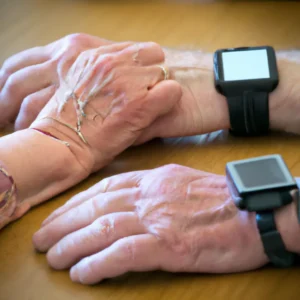Improve Mental Clarity by Staying Hydrated
How Hydration Affects Mood and Emotional Well-being
In our fast-paced world, we often prioritize physical health, nutrition, and exercise. However, we neglect hydration, which influences both physical and mental well-being. Water profoundly impacts our bodies, yet many overlook its effects on mood and emotional health. This blog post explores the connection between hydration and emotional well-being. We will examine the physiological mechanisms involved and provide practical tips for maintaining optimal hydration. Additionally, we will discuss hydration’s broader implications for mental health and emotional resilience.
The Connection Between Hydration and Mood
Water comprises about 60% of the human body. It plays an essential role in digestion, circulation, and temperature regulation. The brain remains particularly sensitive to hydration levels. Research shows that mild dehydration, defined as losing just 1-2% of body weight, can alter mood, energy levels, and cognitive performance.
Effects of Dehydration on Mood
Dehydration increases irritability, fatigue, and mood swings. A study in the *Journal of Nutrition* found that mildly dehydrated individuals reported more tension, anxiety, and fatigue than those adequately hydrated. This situation creates a vicious cycle. As stress rises, people may forget to drink water or turn to caffeinated beverages, worsening dehydration.
The Role of Neurotransmitters
Hydration influences neurotransmitter production—chemicals that transmit signals in the brain and regulate mood. For example, hydration levels affect serotonin, the “feel-good” neurotransmitter. Dehydration hampers serotonin production, leading to anxiety or depression. Conversely, proper hydration supports neurotransmitter function, stabilizing mood and promoting well-being.
Practical Tips for Staying Hydrated
Staying properly hydrated doesn’t have to be difficult. Here are practical strategies to help you drink more water throughout the day.
1. Carry a Water Bottle
Carrying a reusable water bottle ensures hydration. Choose a stylish, easy-to-carry bottle. Having water readily available encourages you to sip throughout the day, making it easier to meet hydration goals. Aim to refill your bottle multiple times and track your intake.
2. Set Reminders
In our busy lives, we often forget to drink water. Set reminders on your phone or use hydration tracking apps to stay accountable. These reminders serve as nudges to drink water, especially during long work hours or activities where time slips away.
Conclusion
Hydration significantly impacts mood and emotional well-being. Prioritize hydration for better mental health and emotional resilience.
Below are related products based on this post:
FAQ
How does dehydration specifically affect my mood?
Dehydration can lead to increased irritability, fatigue, and mood swings. Studies have shown that even mild dehydration can cause feelings of tension, anxiety, and overall fatigue, creating a cycle where stress may lead to further dehydration.
What role do neurotransmitters play in the connection between hydration and mood?
Neurotransmitters are chemicals in the brain that transmit signals and regulate mood. Hydration levels impact the production of serotonin, the “feel-good” neurotransmitter. When dehydrated, serotonin production decreases, which can result in feelings of anxiety or depression.
What are some practical tips for ensuring I stay hydrated throughout the day?
To stay hydrated, consider carrying a reusable water bottle to make water easily accessible. Additionally, setting reminders on your phone or using hydration tracking apps can help you remember to drink water, especially during busy periods.















Post Comment